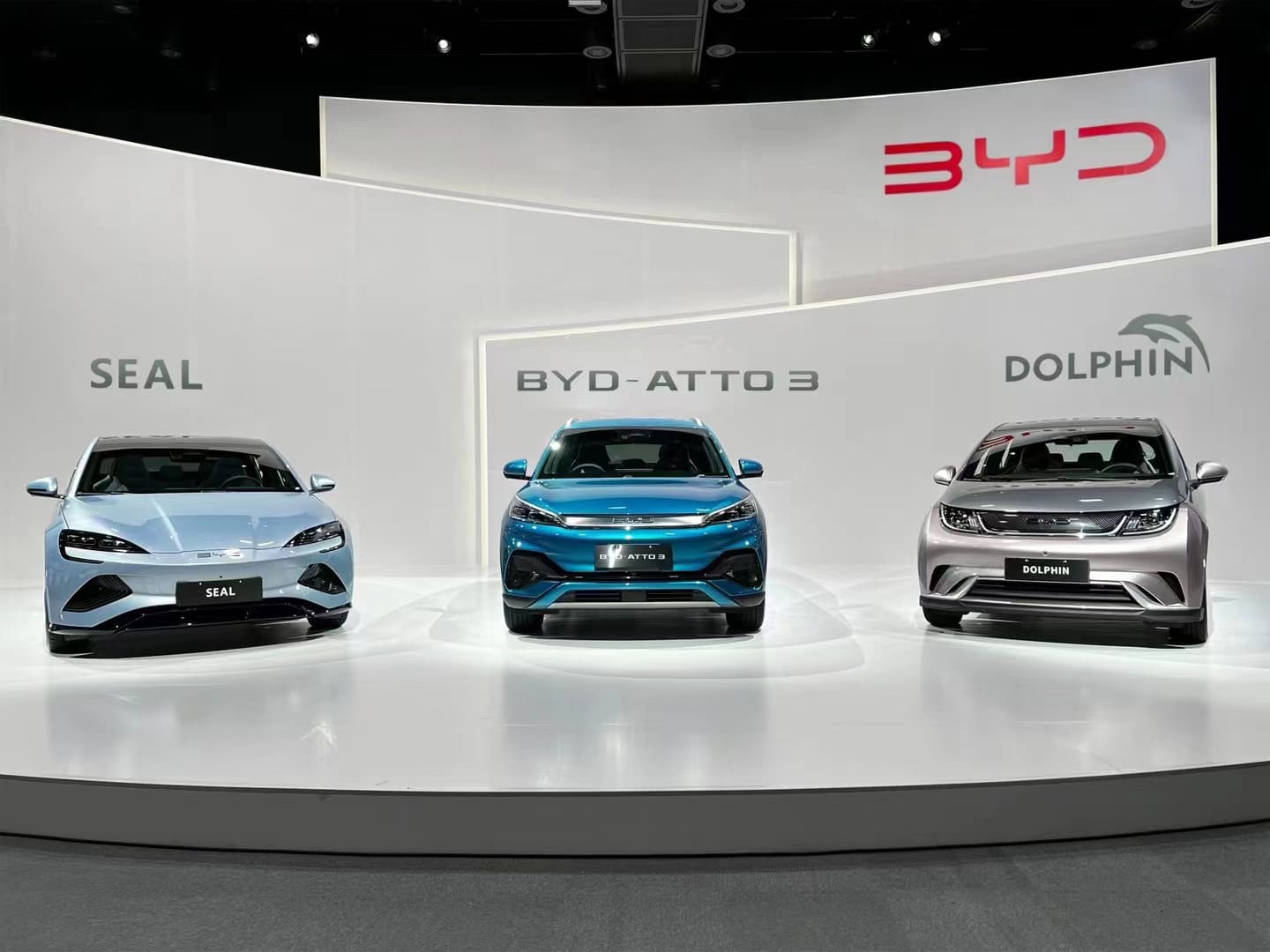We EV pundits have been writing about the rise of the Chinese EV industry for years. In recent weeks, the mainstream press has picked up on the story—many articles describe the coming wave of Chinese exports in apocalyptic terms. A recent headline in the New York Times warned of a “wrecking ball” heading for Detroit. Tesla’s CEO cautioned investors that Chinese EV makers are poised to “demolish” Western firms (presumably including his own).
There are sound reasons for the Big Three to be worried. They have fallen far behind in the EV race, and they know it. Chinese OEMs are now producing good-quality vehicles, and thanks to cheap labor, government subsidies and economies of scale, they’re able to offer these at prices no Western automaker can hope to match. Now they’re ramping up production and building a fleet of gigantic auto-carrier ships—it certainly appears that they’re planning to flood the global market (they’re exporting gas-burners too).
Chinese automakers are already selling their wares in Europe, but they face high barriers to directly exporting them to the US, including a 25 percent tariff, which was imposed by the previous US administration and remains in force. But neither this nor the Inflation Reduction Act’s generous subsidies for domestic EV production are likely to keep the invaders out for long. Chinese-owned Volvo has opened reservations in the US for its new EX30, an intriguing new electric crossover that starts around $35,000, tariffs or no tariffs.
The coming showdown is politically fraught for President Biden, who has done more to support electrification than any president to date, and whose policies are crafted to ensure that American workers will be the ones building the next generation of cars. Biden’s likely opponent this November has been a consistent opponent of EVs (despite some Orwellian claims to the contrary during the last election cycle), and his talk of simply banning the newfangled contraptions surely resonates with certain voters.
The New York Times’ Robinson Meyer believes that the administration will have no choice but to impose more trade restrictions. Of course, the counter-productive long-term effects of such policies aren’t hard to see. “Mr. Biden must be careful not to cordon off the American car market from the rest of the world, turning the United States into an automotive backwater of bloated, expensive, gas-guzzling vehicles,” Meyer writes. “The Chinese carmakers are the first real competition that the global car industry has faced in decades, and American companies must be exposed to some of that threat, for their own good. They must feel the chill of death on their necks and be forced to rise and face this challenge.”
Mr. Meyer and others writing about the impending automotive apocalypse focus on BYD, which sold three million electrified vehicles last year, taking the title of top EV-seller away from Tesla. The company now has enough production capacity in China to manufacture four million cars per year. It’s building factories in Brazil, Thailand, Hungary and Uzbekistan, and will soon break ground on a plant in Mexico. Its cheapest models go for a little over $11,000.
Just about everybody seems to expect BYD to use its Mexico plant as a Trojan dragon, to produce tariff-free cars for the US market—everybody that is, except BYD, which recently denied plans to sell passenger EVs in the US (the company has been producing electric buses in California for years).
“We don’t have plans to come to the US,” Stella Li, the CEO of BYD Americas, recently told Yahoo Finance. “It’s an interesting market but it’s very complicated if you’re talking about EVs. I think the US market is a little bit [slow] on electrification and there are a lot of confusing, also very complicated [issues].”
“Here in the US, you have too many confusing noises, speech from different [politicians],” said Li. “This can bring a lot of [confusion] to consumers and also to auto manufacturers. They are not eager to invest.” BYD’s Mexico facility will “mainly support the Mexican market,” she added.
That said, Li added her voice to the chorus of warning for Western automakers: “If you are not investing for electric cars, you are out. You will die. You have no future.”
Sources: New York Times, Yahoo! Finance, Electrek




